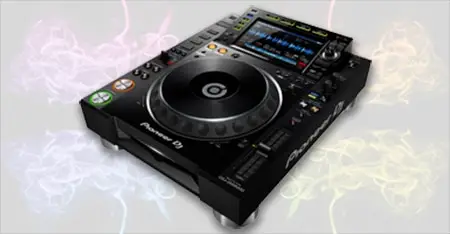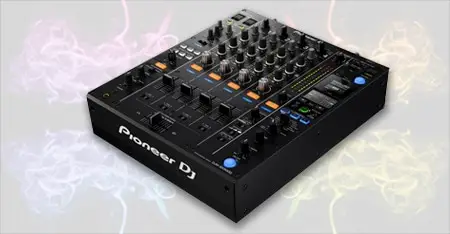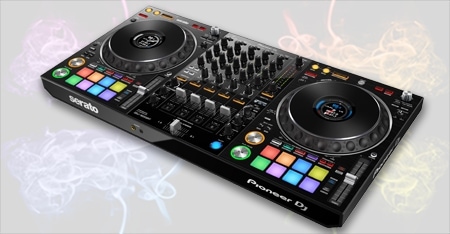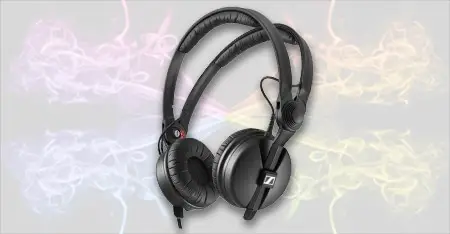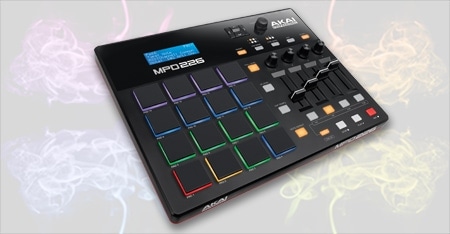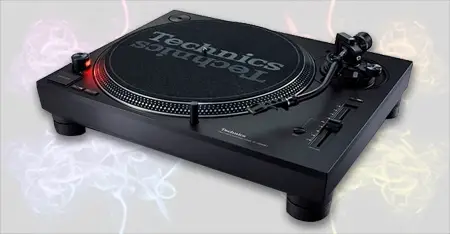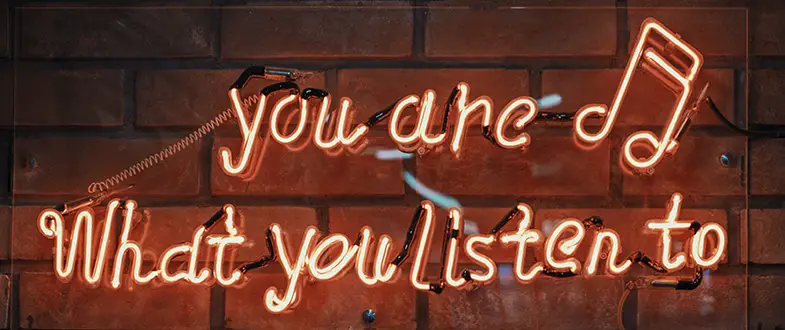
It’s easy to get overwhelmed with the idea of DJing, but it doesn’t have to be hard. learning how to DJ is just a case of breaking everything down and learning one aspect at a time. Make your life easier by following these DJ Tips for Beginners…
Learning to DJ can seem overwhelming at the beginning. It takes time and patience to bring your skills and confidence up. There are ways to spend up learning however. Emulating successful DJs/mixes and recording & critiquing every practice session are two of the best methods to learn fast.
That said, there plenty of other points to bear in mind. Therefore, when learning how to DJ, it’s important to remember that some things are more important than others. So, if you prioritize what you learn, this will help you develop your style and skills a lot quicker.
In this article, we’re just going to run through some top DJ tips and tricks for beginners.
Have Fun ALWAYS – by Far the Most Important of the DJ Tips for Beginners
Contents
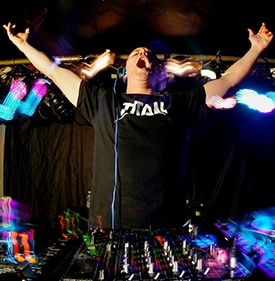
This is the top tip for a reason and that’s because fun is infectious and DJing is no exception.
If a crowd sees the DJ having fun they are much more likely to get in the zone and enjoy their evening as well.
If the DJ isn’t engaged in the music or just looks moody behind the decks then how do you think the crowd is going to react?
Having fun while DJing also goes for when you’re not playing in front of a crowd.
Always be sure to have fun in your practice sessions as they should never feel like a chore.
Try out new ideas or tricks, some will work and many won’t. But you’ll be surprised how many techniques are developed just by messing around and having fun while DJing.
Always Be Learning
One of the great things about DJing is that there’s always new music and new technology coming. Don’t stress though, because the skills you learn will apply to everything, no matter how the scene changes.
The most important thing when starting is to be prepared to always be learning. There is no limit to how far you can develop your skills or your music knowledge.
If you can enjoy the learning process then trust me, it will make DJing as a career a lot easier and a lot more fun.
Be Organized

This is perhaps the most unsexy of the DJ tips for beginners, but it does help immensely in both your DJ career and during your sets.
The last thing you need when performing is to have added stress of trying to find specific tracks that have been not been labeled or categorized properly.
Get in the habit from day one of organizing your music library in a way that makes sense. A lot of DJs do this by either genre or BPM (Beats Per Minute).
You could also do it by mood or perhaps the type of event. Like if you are going to be DJing in clubs as well as weddings or launch parties, for example.
Like I said not sexy but having an organized DJ library is a great habit to get into early.
If you want a detailed list of ideas of how to organize your music, head to this article here.
Determine Your Musical Direction
Although you should be open to your style and tastes to evolving over your DJ career, it can be a good idea to focus on your favorite genre when starting.
Don’t worry about limiting yourself to specific music early on in your career as DJs can make a name for themselves in any genre.
And down the line, if you want to branch out into other genres, then there is absolutely nothing stopping you.
I suggest starting with your favorite genre because there’ll be a lot of tracks you are already familiar with. These are the ones you’ll find easiest to mix as you begin learning DJ skills.
Just get started by getting hold of a good collection of tracks from your favorite genre and just mixing playing with them.
Any Equipment Is Good to Learn On
Whatever the type of DJ you plan to be, any form of DJ equipment is suitable for learning the basic theories of beat matching and building sets.
This applies to both DJ software (on a laptop) or a full set up with decks (push for our recommendation) and mixers.
Someone who spends a minimal amount on cheaper DJ equipment and learns how to use them properly is just as likely to succeed as anyone else. Even those who go out and buy the best of everything from day one.
It is not the equipment that makes a DJ. At the end of the day, it is the passion and skills that they possess.
Choose What Type of DJ You Want to Be

When initially starting and learning the basic theories then, as mentioned above, any DJ equipment will help you to learn.
However, as you start to specialize and discover different types of DJing then you’re going to want specific equipment that supports that.
So, decide whether you’re aiming for packed clubs and festivals with large audiences there specifically to see you.
Or if you intend to be a mobile/event DJ for things like launch parties, weddings, and fashion shows. The crowd may be there for a different reason than you specifically but everyone still wants to have a great time.
The third most common type of DJ is Turntablists. These are the most technical DJs who focus virtually all their time on learning various techniques to mix and transition between tracks.
Get the Right Equipment to What You Want
Club DJs
A club DJ will spend a lot of time going from club to club playing on different sets of equipment often two maybe even three clubs in one night.

Each club will have a slightly different setup although they will all do the same things. What you will want to do is have the industry-standard at home, which is essentially Pioneer CDJs and any form of mixer.
Once you can mix on these then the skills are very transferable to other slight variances of this.
Mobile DJs
You will often have to take your own equipment so therefore you are looking for Portability. All-in-one units and DJ controllers can come in very handy here (see my recommended controller here).
This means you just have a single unit that you plug straight into your laptop and are ready to go. Some don’t even need a laptop, just a USB stick with your tracks on.
Scratch DJs and Turntablists
Require either high-end CD decks or vinyl decks (see our recommended vinyl decks) preferably with a digital vinyl emulation system.
You can read all about DJ setups for beginners have this link or keep reading through these tips and the link will be included again at the bottom of the article.
Know Your Equipment Back to Front
As mentioned above, the skills you learn on any equipment will be transferable from one piece of equipment to another. You will often see the same things on all types of equipment and software so be able to quickly orientate yourself.
The best way to ensure this is to get fully familiar with every single feature of your personal equipment.
There are a lot of buttons etc and quite often equipment is capable of way more than you realize on first look. Exploring these opens up a whole range of different ideas and functionality that can add extra layers to your set.
So, if you are fully comfortable and aware of these ideas on your home setup, then you know what to look for on other setups.
Don’t Worry About Learning Everything in One Go
If you discover a new feature of your equipment then just spend an entire practice session or several just playing around with that one feature so you become fully familiar with how to enable it how to manipulate it and how it would actually fit into a set and basically how useful it can be to you in your career.
You can always then come back and move on to the next feature and eventually work out how they can link together and be used in conjunction with each other to.
Never Get Hung up With Mistakes…let Them Go Instantly

This is one of the best/most important DJ tips for beginners…. Mistakes happen…
They will happen at every stage of your career and even big DJs make them in their sets.
How successful you are as a DJ, and in that individual set, it’s largely down to how you deal with mistakes.
Getting in the habit of letting them go instantly. You will soon learn either:
- how to correct it and move on, or
- if you have a mix go bad then just switch to the new track and move on
You need to keep your head in the game to make the next mix as smooth as possible. You can’t do this if you’re beating yourself up about the last mix. Which brings me to my next point….
You Are Your Own Worst Critic – One of the Mindset DJ Tips for Beginners
I was doing a DJ gig at a festival and pushed the wrong button, starting the track again from the start of a drop. I had actually intended to let that song play out.
Because this happened in time the crowd themselves didn’t notice that anything had happened, sort of.
I was told afterward by friends that the only reason the audience knew something had happened is that I did a facepalm on stage and hung my head in shame.
Therefore, it was only my reaction that indicated that something had gone wrong. If I had just shaken the mistake off then most of the audience would have been none the wiser.
Love DJ gear?
So do we, check out our favorites…
Respect Yours, And Everyone Else’s Equipment
The habits of a DJ play a huge part in their success in the industry.
And by this, I don’t just mean whether they are professional and courteous to the people around them. I mean how they are to their equipment and how they approach their mixes.
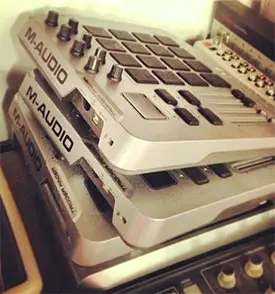
A lot of DJs can be either rough with equipment or, by not fully understanding it and using it properly, they run the risk of damaging sound systems.
For example, I have known a friend to blow a club sound system when bringing in a second track that was far too loud. If he had known how to use the gain knob properly then the speakers would have been safe (I’m looking at you Wil, shame you didn’t read these DJ tips for beginners beforehand).
So when learning how to DJ make sure you know exactly how the equipment works and what it’s capable of. Good AND bad.
If there is something you don’t understand then it’s best to ask someone and/or learn specifically about that one thing. Then it doesn’t risk turning into a bad habit just because it was something that you were ignoring.
Know How to Beatmatch by Ear – One of the Essential DJ Tips for Beginners
This seems to be a skill that many people aren’t even sure if they need to learn these days.
The fact that most decks or software has auto-sync (i.e. automatically matching speeds of tracks for you) means that DJs have a lot more leniency than they used to.
However, not all equipment is created equal and not all equipment is set up perfectly.
So it always pays to be able to beat match by ear. Therefore if something is not working, or has been set up incorrectly i.e one deck is running slower than the other then you’ll be able to pick up what is wrong and correct it accordingly.
Likewise, if there is any equipment breakdown or you find yourself performing on cheaper equipment, where the sync feature is simply not reliable, then you will still be able to perform an excellent set. Simply because you have taken the time to learn beatmatching properly.
If you haven’t practiced this essential DJ skill then you really will struggle for the entire set.

Learn to Beatmatch Using the Same Track
This is another standout in the list of DJ tips for beginners as it will help you understand the concept of beat matching very quickly.
All you need to do is have copies of the same track loaded onto both decks (see our recommended decks here).
Make sure they are the same speed and then practice dropping a track on the beat and, if necessary, making minor adjustments so that the drums are running in time together.
By doing this you will quickly learn what it sounds like when drums are synced, or out of time.
Beat Match Using a Single Genre
One of the first DJ tips for beginners mentioned focusing on your favorite genre when starting out. And the same particularly applies when learning to beat match.
Sticking to one genre means that all tracks will already be in a similar tempo and style. Also, your familiarity with the tracks will help you pick out any mistakes and make small tweaks to make things sound right.
Don’t ever be worried about being too narrowly focused on one genre when learning. Once you have learned the skill of beatmatching then you will find it very easy to apply it across all other genres.
Learn to Count to Eight
When counting music you may be familiar with the concept that most people count to four before starting again. In dance music, however, tracks are built around phrases and sections of eight.
Getting in the habit of counting to eight, and hearing the changes in the song, makes mixing and beat-matching a lot easier than if you are thinking in counts of four.
This is getting into the music theory side of things, which I won’t go any further into in any of the other DJ tips for beginners. So just remember this as the most important bit of theory to keep in mind.
Tune Selection, Another of the Essential DJ Tips for Beginners
Music selection beats technical ability, always.
A DJ that has spent their time:
- building a large music library and in-depth of musical knowledge
- Learning how to read and understand a crowd
- Learning how to blend cleanly between tracks
Will always perform a better set than a DJ who has spent their time:
- Learning a thousand little tricks and techniques to transition between tracks
- Not learning how to read a crowd
Most audience members aren’t even aware of the technical skills that go into changing from one track to another.
So while other DJs might be impressed that you are pulling off 10 technical tricks in your mix it’s going to go unnoticed by a vast majority of the audience. Turntablists are the absolute exception here, people are all about watching the skills.
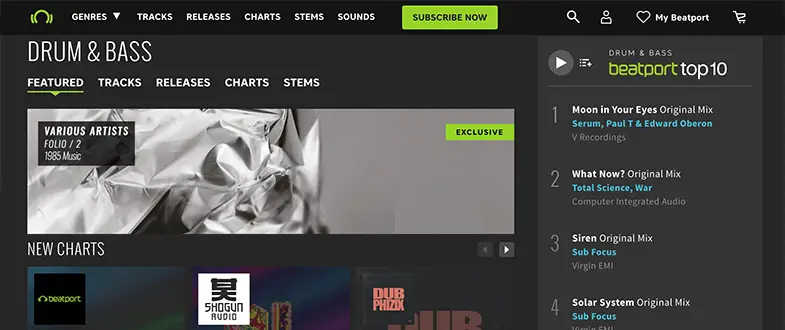
Therefore the DJ with the best music knowledge, cleanly mixing the exact tracks the crowd like will outperform a DJ who is guessing tracks but transitioning with a barrage of technical skills.
This is what I mean by music beats technicality.
Which also feeds nicely into the next tip….
If You Don’t LOVE Music You Won’t Love DJing
Virtually all successful DJs are absolute music nerds. It is this love of discovering new music and playing that for a crowd that has driven their DJ career.
So, if you don’t love listening to new music or, have the patience to listen to 100 mediocre tracks to find one banger, then chances are you won’t have the long-term commitment to make it as a DJ.
A passion and love for music always have to be the basis of a good DJing career. Aside from anything it will help you practice as much as you need to.
Learn to Scratch… But Only If You Want To
Scratching is one of those skills that is definitely not essential to being a DJ. Most DJs don’t incorporate it in their sets at all.
So don’t worry about scratching unless it is something that you particularly love to hear in the mixes you listen to. If it is then it’s a good skill to add to your arsenal.
However, don’t get caught up in thinking you have to be able to scratch to be a “proper DJ”. This frame of mind actually held me back for a couple of years, and it was wrong.
It is a nice-to-have skill NOT an essential skill.
Instead, I would focus on beatmatching exclusively then, if it does interest you then learn how to do some basic scratching after that.
Record Everything
Practicing at home is great because you allow yourself to make many mistakes because there’s zero pressure.
However…

(Here comes one of my FAVOURITE DJ tips for beginners)
If you want to accelerate your learning then there are two ways to do it
- Play in front of crowds (discussed further below), or
- Record everything you do, like, EVERYTHING
Don’t worry I’m not suggesting you upload it all put it on CDs to send out, not yet anyway… Initially, these recordings will be for your ears only.
They allow you to listen back and analyze what you did well, and what you could have improved upon. Much easier than trying to judge your performance while in the middle of doing it.
Learning to mix under pressure
Something magic also happens when you feel the pressure from that red blinking record light. It forces you to up your game while also making more comfortable with performing under pressure. Even though you know it is just a home recording for your own needs.
This means when you do come to record mixes to put online or even in a club then pushing record is nothing new to you.
So, get in the habit of recording every single practice session you do. Then the next day, on your commute, for example, go back and listen to it and critique yourself.
Remember don’t be harsh on yourself. Just learn what you did well and what you could improve. Once you’ve been through and if you don’t feel it worth keeping the mix just delete it. Or archive it! Eventually, you will build up a complete library of your progress throughout your learnings and DJ career.
I guarantee this technique will help you learn a lot quicker than practicing and trying to judge yourself in the moment.
Love DJ gear?
So do we, check out our favorites…
Get in Front of a Crowd – the Scariest of the DJ Tips for Beginners

Recording practices are great for getting used to some pressure, however, to stick a rocket up your learning then start playing in front of crowds asap.
An easy gig (both to get and to play) is DJing in a bar without a dancefloor.
This is super low pressure as you are not in charge of keeping people busy and dancing. However, you are still in charge of creating an atmosphere and helping people enjoy their evening.
Playing to an audience makes you think a little deeper about the tracks you select while teaching you to mix that little bit smoother.
Don’t think that you have to spend years and years practicing at home until you are perfect at mixing.
The chances are, even if you spent 10 years practicing then the first gig is still gonna feel like you know nothing. Kinda like the first time you drive a car by yourself after passing your test. Suddenly you realize you know nothing!
So, the sooner you get your first gig out of the way and become comfortable with an audience then the quicker you will learn.
House parties are of course another great way to practice in front of audiences. These are perhaps the lowest pressure although most end up with a dance floor so is a good way to dip your toe into keeping people dancing.
Find a Role-model
Perhaps one of the more surprising DJ tips for beginners…
When starting there is nothing wrong with emulating your favorite DJ.

You can even go as far as getting the tracks from your favorite mixes and learning how they put it together. This will teach you many different elements about mixing, tune selection and style.
Doing this is a great way to give yourself a guideline when first starting out.
Too often new DJs will cobble together random selections of music and just try and start mixing with them.
Professional DJs however, mix and put tracks in order for a particular reason. Therefore, emulating them (in your early stages) will giving you a basic understanding of what type of tracks to select and why they’re in the order that they are.
Don’t worry about “copying” people, that’s not what this is about. Because, as soon as you’ve learned the basics you’ll very quickly start coming up with your own ideas.
It is out of these ideas that your own style will begin developing very quickly.
Be Patient Like, Really Patient
One thing about DJing is that it does all take quite a long time.
It will take a long time to build up a vast music collection and know each track inside out. It takes time to fully master the art of blending and mixing. Plus the time to build up the connections and relationships that make getting gigs and getting paid for your skills possible.
Don’t be put off though, this is where patience and having fun come in.
When you are enjoying the art of collecting & learning about music and meeting new, interesting people then the patience part becomes easy. So always be sure to enjoy the journey, have fun and just don’t get disheartened if nothing big has happened after only a few months of DJing.
The most successful DJs would have had to have the patience to just keep working. Although I’m sure they loved doing the work and that is how they got where they are now.
Learn What the EQs Do
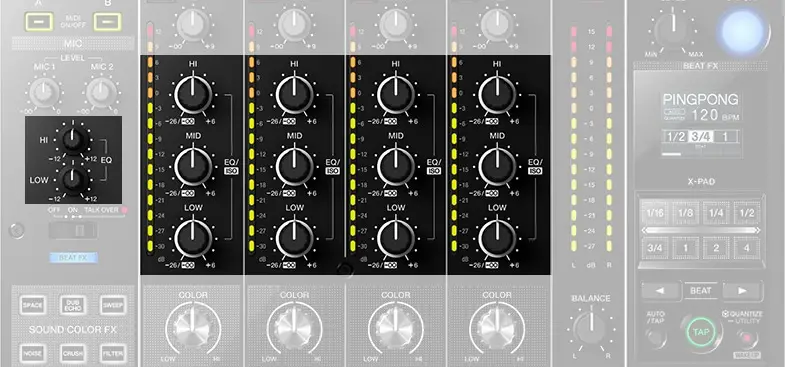
The true art of DJing and being able to tracks together smoothly lies in understanding, at least on a basic level, some audio theory.
DJ Mixers give you the ability to manipulate the bass, mid and treble of a track. Understand what these are, why they are important and how to use them to make your DJ mixes as slick as possible.
An in-depth explanation of EQs can be found here or finish reading the DJ tips for beginners and hit the link at the bottom.
You can check out my recommended mixer here.
Learn How to Read a Crowd – One of the Essential DJ Tips for Beginners
Ever been in a club and the DJ just never seemed to look up from the decks. Or have any form of exchange with the crowd at all?
Don’t Be That Person! This another of the most important DJ tips for beginners to remember.

The most successful DJs are able to be fully spontaneous in their sets.
This is because, as they play tracks, they watch the crowd to see what the reaction is. Over time they understand what tracks, and even what sections of tracks, get the biggest response from that particular audience.
As you grow in confidence you’ll go to gigs and very quickly be able to gauge the mood of the crowd. You’ll be able to play tracks they will love and is going to keep them moving all evening. And, if you do your job well talking about your set long after you’ve finished.
Don’t go into a DJ set knowing exactly the tracks you are going to play from start to finish (although this can help take the pressure off in your early days).
Instead, have an idea of some tracks you’d like to play but be open to going with the crowd and being spontaneous.
Red Equals Danger – the Warning in the DJ Tips for Beginners
Okay so not really, although danger to your crowd’s ears and the sound systems perhaps.
On your mixer you have sound levels that range from green to red, which in general you’re going to want to stay out of. Redlining constantly is where you risk distorting the sound and making difficult for the crowd to listen to.
Instead, keep your tracks in the green and turn up the sound with the main mixer volume knob.
If in doubt when playing a club then ask the advice of the technician or the regular DJs to make sure you are getting the most out of the sound system.
Understanding the equipment helps massively in this respect but essentially get in the habit of being able to mix without living in the red zone.
Effects Are Great but Less Is More
Mixers that have hundreds of effects, and using them, are not a replacement for having good DJ skills.
This is quite possibly one of the most ignored of the DJ tips for beginners, but here it goes…
Although DJ effects can be used to mix tracks, and even cover mistakes, they shouldn’t be used excessively.
Instead, effects should be used as another subtle layer to your mixes. They should be an extra touch to the track yet should never overpower it and become the main feature themselves.
Using effects too much can be annoying to your audience and break the flow of your set. Which is exactly the opposite of what you want.
They have a place but learn how to use them well, and when not to use them at all.
For a mixer with built-in effects, head here.
Good Headphones Matter – Another of the essential DJ Tips For Beginners
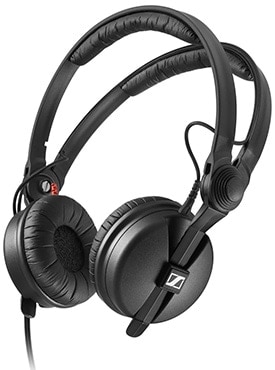
One of the common questions you hear is what a DJ is actually doing when they’re wearing headphones.
They are doing things like previewing different tracks to find exactly the one that will fit. Also adjusting tempo to match the current track or choosing cue points to use when dropping the track.
This means a decent set of headphones can make or break a DJ set.
For example, if they have bad sound, aren’t loud enough or boost the bass too much then you will be hearing a distorted version in your ears. This not only makes means that you might get your EQ wrong when it comes out through the main speakers but will make the mixing and beatmatching harder in the first place.
You don’t need to spend hundreds to get a decent set of headphones, just don’t skimp too much on them.
To see which headphones I recommend head here, hint, they’re used by plenty of big name DJs.
When in Doubt… Kick Drums
The bass part of the track is what carries the most volume and ‘weight’ over a sound system.
So when learning to beat match particularly at the outset then a highly effective technique is to swap the bass and the kick drums from one track to the other.
You do this by learning how to use the bass or the low EQ knob effectively. This can be a great way to bring in a second track.
For example, you can have the vocal/melody line playing from track one, and bring in drums from track 2. Doing this you are essentially creating a mashup live in front of the crowd.
So when in doubt… play with, and swap, the bass first.
To Sum up the DJ Tips for Beginners… Learn the Rules, Then Forget Them
Use the rules and theories mentioned above to start learning how to mix music. However, as you become familiar with techniques and your style evolves then you’ll start to care less about the rules. Instead, you will begin to develop your own sense of what sounds good.
After all, if something sounds good, then there won’t be a single person critiquing the music theory behind the mix.
So use the rules to get going but never be afraid to experiment, try new things and discover new techniques.
After all, this is how rules got invented in the first place…
FAQs: DJ Tips for Beginners
What are the qualities of a good DJ?
There are a few qualities that you will find in all successful DJs. The most important is having a passion for music itself. Without this, you will not have the drive to keep going and practice will become a chore. But if you love discovering and playing new music then you will never get bored. Commitment comes next. This means a commitment to learning the necessary skills, as well as the dedication needed to always be finding new music.
Belief is also important, belief that you can learn anything that you need to and keep up with any changes in technology and the industry as a whole. An ability to network and make friends easily will also serve you very well as DJing is one big community so the more contacts you can make, the faster your career will progress.
What education do you need to be a DJ?
None but self-education and that is what makes it such a great, and accessible, hobby and career choice. Although there are plenty of DJing courses available that can accelerate your learning if you have the dedication and a love for the music then you can teach yourself everything you need.
In fact, many of the current superstar DJs are self-taught (like Skrillex for example, see his amazing setup here). Two ways to speed up your learning is to record your practice sessions and listen back to clique your mistakes (and wins) and also getting out and gigging as quickly as possible. Not only does this push you to improve your skills, but it also means you start learning how to read a crowd. A vital skill required by all good DJs.
One area where education can help can be in the radio DJ world where something like a media degree may help you get a job. That said, often the best way to get into a radio station is to intern. This allows you to learn all the same skills while also getting real-world experience. Ultimately both result in the same thing (working on the radio), but the second one if a lot cheaper…
What next?
- Need help getting DJ gigs? How about 38 different ways
- Trying to choose your DJ name? Use this in-depth guide to find one

